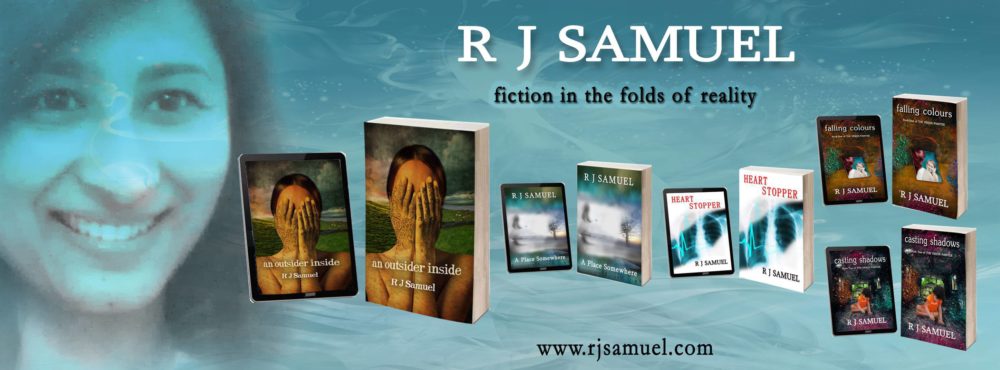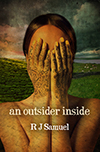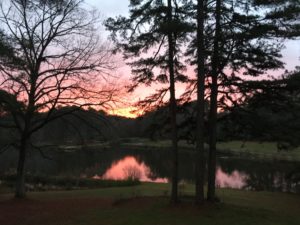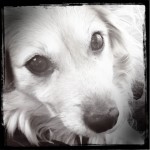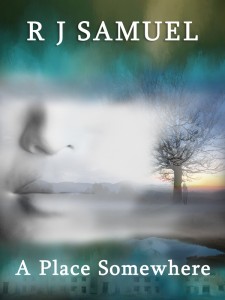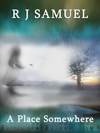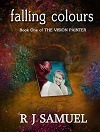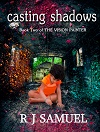Acceptance Speech for the Ann Bannon Popular Choice Award 2018
(I was thrilled to win an award voted on by readers, the Ann Bannon Popular Choice Award, and as I was not present for the awards ceremony I want to thank all those who voted and gave me the chance to speak about An Outsider Inside and why I wrote it.)
I would have received this award from Rachel Gold which to me is the most fitting coincidence as she was my alpha editor as we decided she would be called, and the book is what it is because of her. As I’ve said to her, thank you is inadequate.
When I was a child, I lived in Nigeria. I dug a hole in the ground near our house which was on a school campus in Oyo, in the southern tropical part of the country, so the soil was rich and dark. But there were no trees on our plot, just the exuberant garden of banana and papaya, and pineapple and whatever else my dad managed to grow. I don’t know if I would have built a treehouse even if there’d been a tree available. I was a reserved, introverted, mostly quiet child in a pretty loud family. Loud when it actually was all together. But most of my life was spent away from family, as a baby with my grandparents in Kerala or as an unaccompanied minor in a British military boarding school in the hilly tea plantations in southern India, or living with half the family in the red-dust Saharan Northern part of Nigeria, or as a teen, the only child left at home, the only Indian day student at all-Nigerian girls boarding school, or the rare brown person in the almost all-white Ireland where I lived for nearly 30 years.
I am a brown lesbian woman who has had the good fortune to have lived amongst and known a wide variety of people in many countries. While I was blessed to have a good education, I had no formal learning in social studies or politics so I spent most of my time observing and experiencing, but unwilling to speak out too loudly in case I didn’t use the right words, the often required complicated words that I find now more often mask simple truths and serve to divide. I studied the best writers of the stories that enthralled me personally and I learnt how to write entertaining stories. And in those stories I found a way to pass on whatever education I had received, lessons received willingly sometimes, in friendship, love, team, sports, play, fun. Other times, lessons received in the often silent violence of abuse, both physical and emotional, both in excess and in withholding, because that is the power of the charismatic abuser.
An Outsider Inside explores some difficult and diverse issues; narcissistic abuse in relationships, racism in Ireland, homophobia in Indian society, transphobia basically everywhere… How we exclude others even as we tout our inclusivity because of our supposed shared understanding of the pain of exclusion.
Some of the issues explored are from personal experience. I have been surrounded by narcissism and other variations on the spectrum of personality disorders. So for anyone who has experienced this, you will understand when I say my personal learning and life really only truly began in the last few years when I became aware of the effects of those disorders on the recipients. I use the term recipients now as the other words are loaded, victim, survivor, thriver, and while I agree with their accuracy and relevance, I need for myself to use a neutral word such as receiver so that I can examine and understand with less external weight. Many stories are told about people with these personality disorders, often without being aware they have these disorders because many are blessed with extreme charisma, and I believe more stories should be told from the point of view of the receivers, because they are usually quieter, their voices subdued through ridicule, through gaslighting. I believe this is even more important now, that more people recognize the behaviors and realize when they are enabling the charismatic narcissists who are applauded, who rise to prominence and power. Perhaps more importantly, to recognize the effects on the receivers, one of which is feelings of confusion, doubt, and powerlessness. A vicious circle, that further enables.
Of course, the issue of racism affects me directly, and while my longest experience was in Ireland, it has surprisingly been more difficult in recent times and in this country than I ever thought it would be.
Some of the issues don’t affect me directly but writing the book made me explore them further. I’m not transitioning and I’m not planning to even though that has come up as I’ve recently been enjoying performing as a drag king and cross-dressing.
I don’t identify as bisexual, but that is really probably more to do with my lesbian dating/love life being complicated enough, well, mostly non-existent, at the moment as I try to figure out how to actually have a healthy one.
I felt the need to write about biphobia because I realized with surprise that I had internalized it myself. I found out after I wrote the book that there was an unspoken rule in lesfic that bisexuality shouldn’t be included. That shocked me and for a brief moment I worried that the rest of the issues would suffer as a result in that they would not get out there to an audience, but thankfully that was a fleeting thought. I would have proved the exact opposite of my values if I did not include a censored subject solely to retain an audience for the other slightly less censored topics.
This is beginning to sound like the start of a joke. What do you get when a bisexual, a person of color, a narcissistic abuse survivor, and a trans person all walk into the karaoke bar at a lesbian fiction conference? The answer should be nothing special. You pull up a few chairs at the table, and life, the singing, and the conversation go on as normal. I would never ask my bisexual friend to wait outside while I get my other friends a seat at the table.
Once we’re at the table, we all have a voice that deserves the same respect. But that is in an ideal world. In the real world, there are so many factors, the space created at the table, the willingness of those already at the table, the noise level in the bar, the crowd, the music volume and tempo, the acoustics in the room. So many factors in the physical environment not to mention the psychological states, the history of real and imagined interactions.
In writing the book, I did what I thought was my part, getting those friends to the bar, and then I realized that they don’t have a voice unless the audience actually hears them. As an indie and the world’s worst marketer, I know I don’t get the book the audience it deserves. I had hoped that the quality of my writing would put the book in contention for an award in its category as I never expected that an indie, relatively unknown, author could win the Popular Choice award.
Back to the karaoke. Winning the Ann Bannon Popular Choice Award is most important to me because, for a brief moment, the microphone gets shoved into my hand and I have the chance to share a song about my friends so that they can live with a little less pain if the audience recognizes them as fellow human beings. But I can’t tell all their stories in one speech so I get to say their names – Jaya, Ishmael, Isabella, Lana, Chloe, Zara. They are not real people, but they are real lives. Your neighbors, your friends, your family, your readers, your writers. I hand the stage and the microphone over to them and let them sing in my book. I would love you to meet my friends and I hope you love them as much as I do. That is why I hope you read the book and why I am most grateful to those who voted for the book and thereby gave me the opportunity to speak.
To go back to that child in Nigeria. I built a hole in the ground that was my version of a treehouse. It even had little mud shelves and seating. That’s where I played, alone, many nights, apart from the imaginary companions I gained from the pages of the books I read. But this particular story is not about my gratitude to the authors of those books though I have bucketloads of that.
In ‘The Gifted Child’ a non-fiction book about personality disorders, a woman who grew up with narcissistic parents says to her therapist that she’s ashamed because she keeps looking for love from partners who are like her parents. She exclaims in shame how she’s an intelligent woman but it’s like she’s been stupidly talking to a wall, expecting to be heard. And the therapist says something about not being too hard on herself and to think about how lonely a child must be to talk to a wall.
I realized my story is about a young child sitting in a makeshift home in the ground talking to a dirt wall. So while the book is the reason I’m speaking right now, the child is the reason I write. Not to be heard only by a real or imagined audience, but to be heard by that child, to say to that child that the only audience that matters in the end is you and you will never be lonely again if you remember that and you hear that true voice. That voice will never abandon you, it is always present in you.
So this audience I gained through this award is important not in the group but in the individual who might hear my voice and recognize their own. To those that question, that is the importance of an award.
Thank you.
RJ
